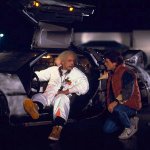David Baxter PhD
Late Founder
Why Time Flies Faster as You Get Older
By Dr George Simon, PhD
20 April 2010
No one has yet come up with a full explanation for why time seems to accelerate as we get older, but there are some theories to account for this disturbingly real phenomenon.
It?s a common complaint from us older folks that time appears to go by faster and faster as we age. This phenomenon is reported fairly universally across many countries and cultures. But it?s still a fairly unresolved question as to why time appears to be so much more fleeting as we get older. Recently, some theories have been developed to explain this phenomenon.
Some researchers seem to think that the perception time speeds up as we age has a lot to do with the amount of experience we acquire as we age and the relative lack of experience with novel, intriguing new experiences. They propose that when we?re young, and almost everything is new and interesting, much more information has to get encoded in the brain. Our first walk in the forest, our first day of school, our first kiss, etc., all stimulate our senses and flood our brains with a deluge of previously unknown information. The processing of all this information takes time and is actually quite exhausting. Doing things that have become routine ? like driving to work every day ? don?t require any new processing, and the experience seems to go by quickly. So, it appears the brain is wired in such a way that when we learn something for the first time, the experience itself appears to take more time. Some researchers note that when most people think of early experiences that are deeply etched in memory, even the act of remembering or reliving them appears to go in slow motion.
A few researchers question the theory above as a suitable explanation for why time appears to go by faster as we age. They point out that as we get older, especially in our 60s and 70s, memories become more precious than ever, and when people recount their experiences, they tend to give almost every detail.
So far, no one has come up with a really satisfactory explanation for why time seems to accelerate as we get older. And I for one can testify to the fact that this phenomenon is disturbingly real. I can?t believe it?s the middle of Spring already when just the other day it was Christmas! I?d say ?Stop the world, I want to get off!? but I?m not quite ready to jump ship just yet. What I?d really like is for time to stop racing away from me at such an unmerciful pace. You see, the faster it goes by, the more I have to reckon with the fact that my time on the planet is inevitably running out. (Sigh)
By Dr George Simon, PhD
20 April 2010
No one has yet come up with a full explanation for why time seems to accelerate as we get older, but there are some theories to account for this disturbingly real phenomenon.
It?s a common complaint from us older folks that time appears to go by faster and faster as we age. This phenomenon is reported fairly universally across many countries and cultures. But it?s still a fairly unresolved question as to why time appears to be so much more fleeting as we get older. Recently, some theories have been developed to explain this phenomenon.
Some researchers seem to think that the perception time speeds up as we age has a lot to do with the amount of experience we acquire as we age and the relative lack of experience with novel, intriguing new experiences. They propose that when we?re young, and almost everything is new and interesting, much more information has to get encoded in the brain. Our first walk in the forest, our first day of school, our first kiss, etc., all stimulate our senses and flood our brains with a deluge of previously unknown information. The processing of all this information takes time and is actually quite exhausting. Doing things that have become routine ? like driving to work every day ? don?t require any new processing, and the experience seems to go by quickly. So, it appears the brain is wired in such a way that when we learn something for the first time, the experience itself appears to take more time. Some researchers note that when most people think of early experiences that are deeply etched in memory, even the act of remembering or reliving them appears to go in slow motion.
A few researchers question the theory above as a suitable explanation for why time appears to go by faster as we age. They point out that as we get older, especially in our 60s and 70s, memories become more precious than ever, and when people recount their experiences, they tend to give almost every detail.
So far, no one has come up with a really satisfactory explanation for why time seems to accelerate as we get older. And I for one can testify to the fact that this phenomenon is disturbingly real. I can?t believe it?s the middle of Spring already when just the other day it was Christmas! I?d say ?Stop the world, I want to get off!? but I?m not quite ready to jump ship just yet. What I?d really like is for time to stop racing away from me at such an unmerciful pace. You see, the faster it goes by, the more I have to reckon with the fact that my time on the planet is inevitably running out. (Sigh)


